Art Fairs
See the Top Booths at FIAC 2016
In Paris, highly curated and elegant presentations triumph over garish displays.
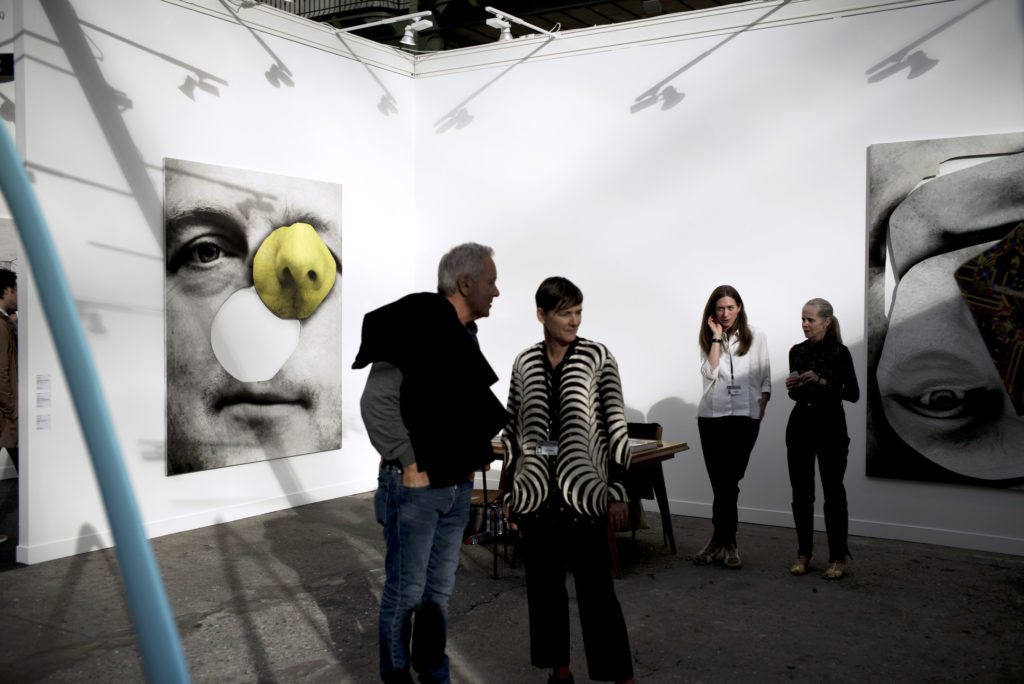
In Paris, highly curated and elegant presentations triumph over garish displays.

Hili Perlson

The 43 edition of FIAC opens its doors to the public today, following a busy preview day that offered a short respite from the rain. In its traditional, and gorgeous, location inside the Grand Palais, the fair hosted a whopping 186 galleries this year—compared to last year’s 170—and expanded with a new section of large-scale artworks called On Site at the Petit Palais across the street.
Perhaps due to the high number of exhibitors, dealers opted for clearly sectioned displays, and booths at the main section of the fair were anything but conspicuous; there were no brightly-colored, glossy surfaces that dotted the aisles, and hardly any selfie ops. But then again, this is Paris, and ostentatious displays are not considered de bon goût. Like in Michael Haneke’s film Caché (2005), it’s only when you’ve crossed the threshold that you witness the wealth within.
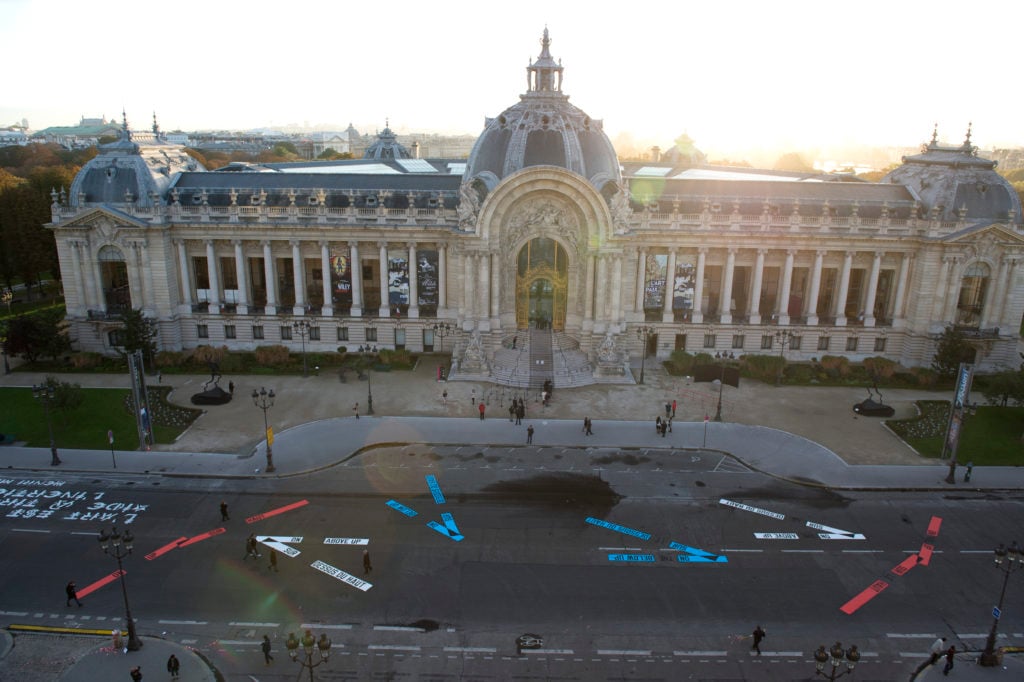
FIAC 2016, view of the Avenue Winston Churchill, sectioned off to connect the Grand and the Petit Palais. Photo ©Marc Domage.
“The mood is quite positive, better than we’ve expected,” one exhibitor opined, expressing what was on everybody’s minds following the speculations on how the rescheduling of London’s Frieze this year might affect the Parisian fair.
Sales were flowing in on preview day; by early afternoon, the aisles were abuzz, important European collectors and curators were discussing works with dealers, and every single restaurant and café inside the fair were fully booked, with one-hour waiting lists. In Paris, one does not buy art on an empty stomach.
Here are some of the highlights on offer this year, and the booths that shone brightest with unique works on view:
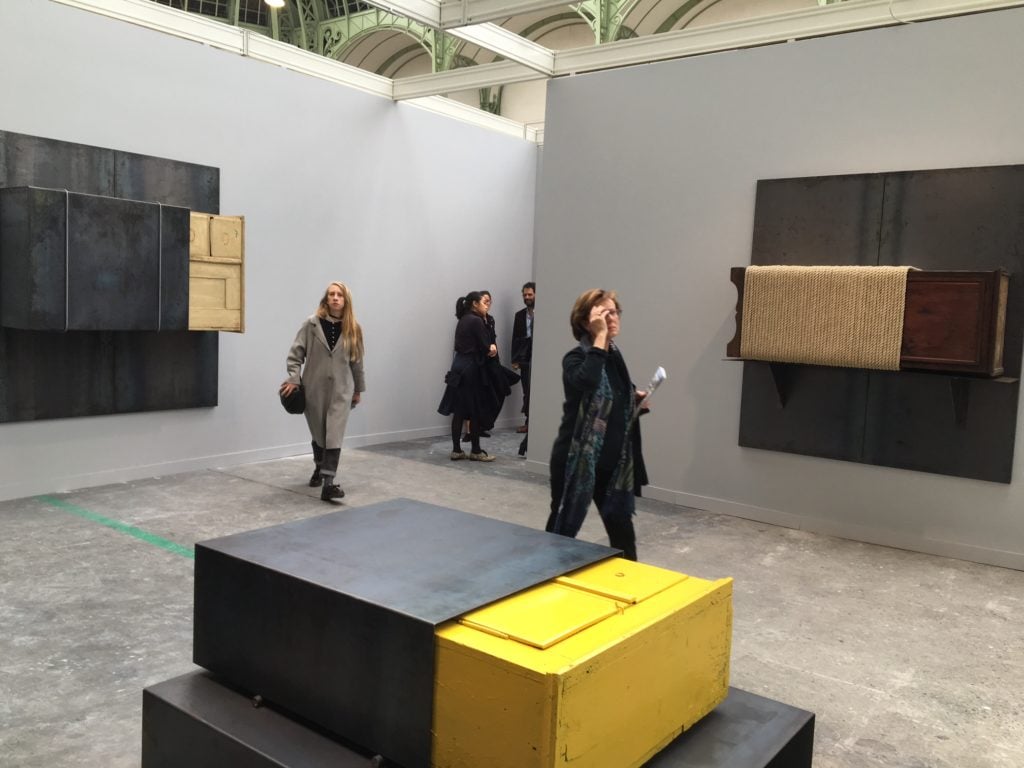
Installation view of works by Jannis Kounellis at Gavin Brown’s Enterprise, FIAC 2016. Photo by artnet News.
1. Gavin Brown’s Enterprise
The New York-based dealer presented a booth dedicated entirely to new works by Jannis Kounellis, from the show “Dodecafonia,” currently on view at the gallery’s space in Rome. The sculptures are made out of found wardrobes from around the artist’s studio in Umbria, enveloped in metal. Housed inside a deconsecrated church, the Rome venue lends an ominous layer to the sculptures—all untitled—that evoke sarcophagus. At the fair, the pieces—which go for about €200,000—impressed with their museum quality.
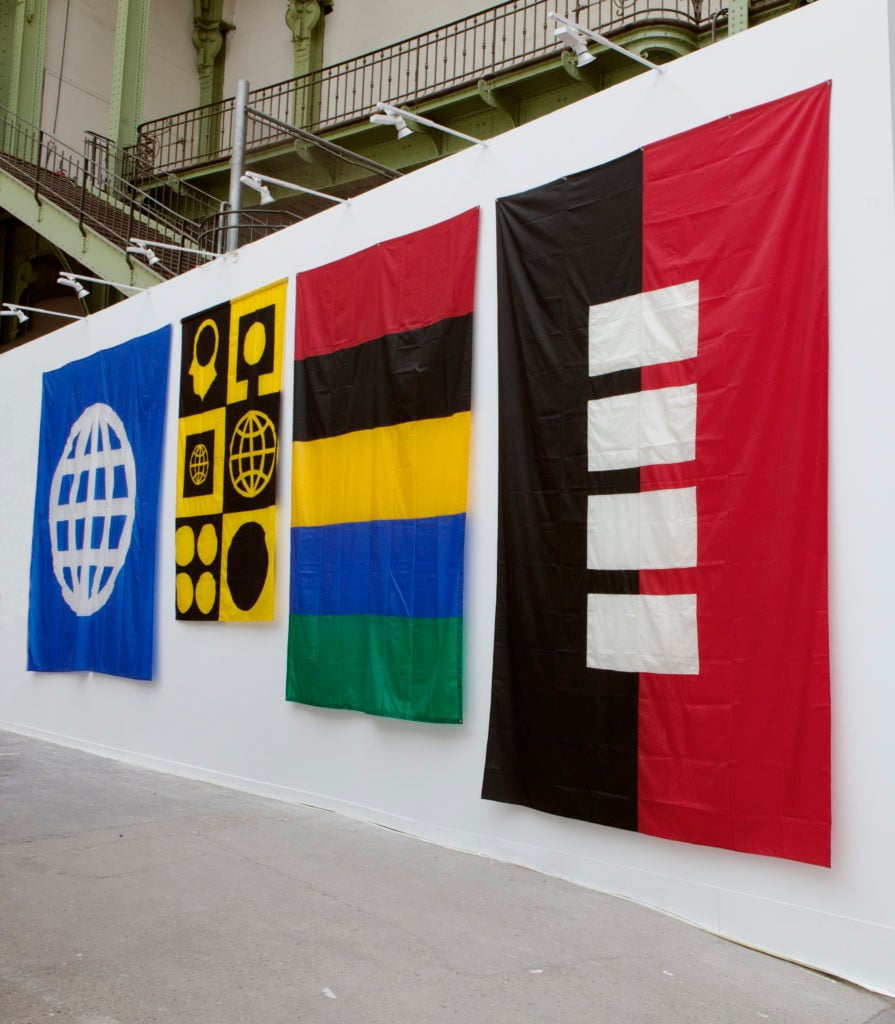
Installation view of Matt Mullican’s Banners (all from 1991) at Peter Freeman Gallery’s booth, FIAC 2016. Courtesy Peter Freeman.
2. Peter Freeman, Inc
With locations in Paris and New York, the gallery is a returning exhibitor at the fair, and have secured the same prominent spot as it had last year. Peter Freeman made the most out of the towering display, hanging works on one of the few high walls available in a sea of more or less uniform stands. Four banners by Matt Mullican from 1991, priced between €42,000 and €66,000, hang high above the booth, representing a plethora of concepts, and acting like a symbolic introduction to the diverse range of artworks at the fair as a whole.
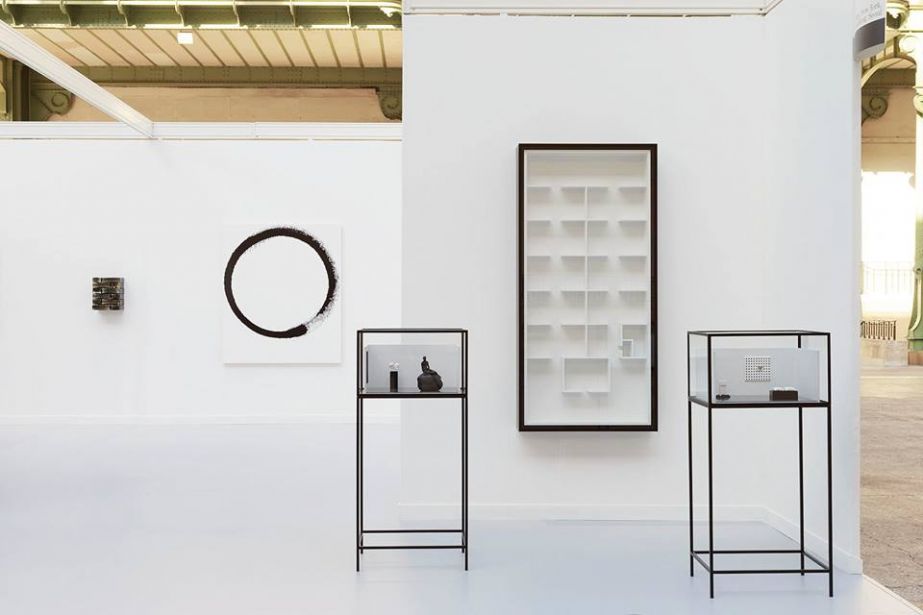
View of Galerie Perrotin’s booth, curated by Elmgreen & Dragset. Courtesy Galerie Perrotin.
3. Galerie Perrotin
On September 24, the artists Michael Elmgreen and Ingar Dragset put up a one-day show at the Grand Palais that consisted of a curated booth standing alone in the vast space—a media-effective conceptual exercise. Placed on the exact spot where Galerie Perrotin would show at FIAC about a month later, it included works by artists from the gallery’s roster in a black and white color palette. Now, the booth has been set up again, building on the concept from the duo’s show “The Well Fair” at the Ullens Center for Contemporary Art (UCCA) in Beijing this past January, and bringing it decidedly into the realm of commerce.
With works by Elmgreen & Dragset, Sophie Calle, Chung Chang-Sup, Bernard Frize, John Henderson, Gregor Hildebrandt, JR, KAWS, Heinz Mack, Takashi Murakami, Jean-Michel Othoniel, Paola Pivi, Claude Rutault, Jesús-Rafael Soto, and Xavier Veilhan.
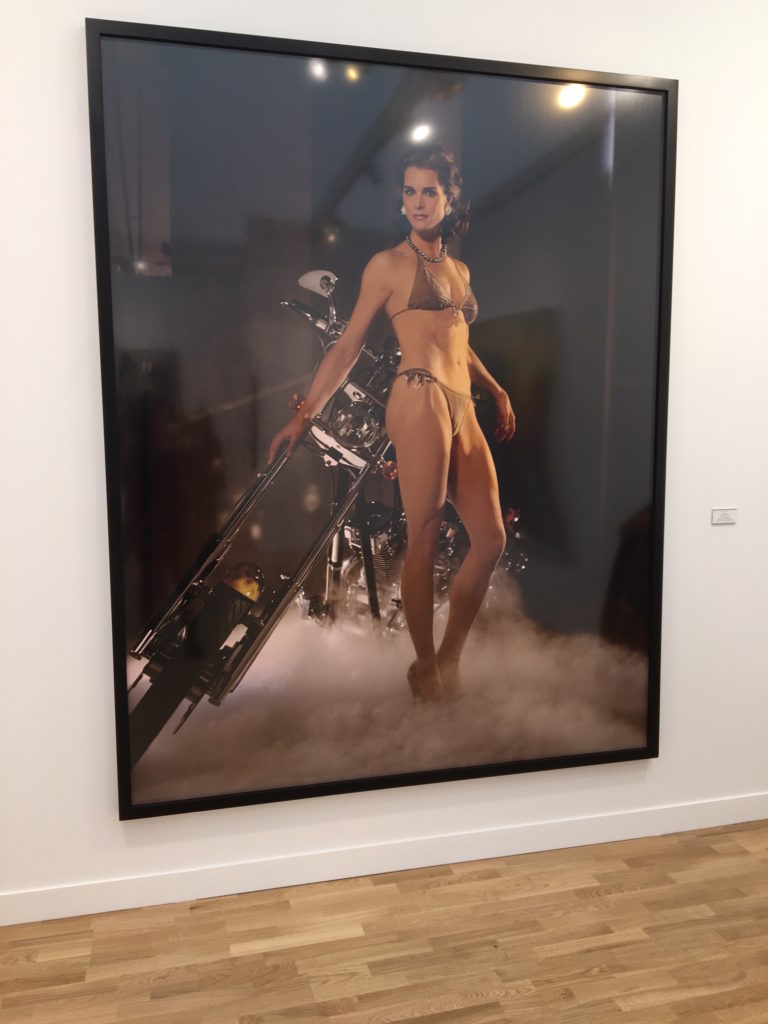
Richard Prince, Spiritual America IV (2005), at Skarstedt, FIAC 2016. Photo by artnet News.
4. Skarstedt Gallery
New York and London’s Skarstedt Gallery reported good sales on preview day, including a painting by George Condo, Untitled (Head #1), (2016) which went for $500,000, and Mike Kelley’s wall piece made of found stuff animals, Three Part Yarn Stack, from 1990, which exchanged hands for $275,000.
Although it hasn’t yet sold at the time of writing, another work on view drew a lot of attention: Richard Prince’s Spiritual America IV, from 2005, features a bikini-clad, toned Brooke Shields posing in front of a motorcycle. It revisits his controversial work from 1983, titled Spiritual America, in which he photographed a picture by Garry Gross, of a nude, 10-year-old Brooke Shields standing in a bathtub. Interestingly, the 1983 photograph is on offer just a stone’s throw away, at the booth of Nahmad Contemporary. There, gallery employees declined to answer any questions about the work asked by artnet News.
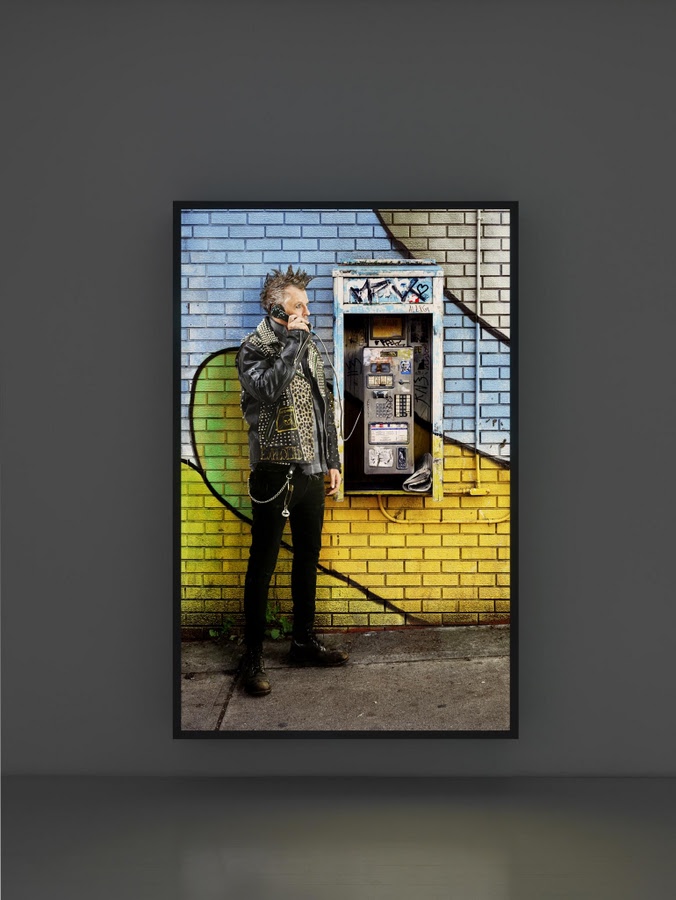
Rodney Graham, Old Punk on Pay Phone, (2012). Courtesy Esther Schipper/Johnen Galerie.
5. Esther Schipper/Johnen Galerie
The Berlin-based blue chip gallery presented a highly curated booth, with a work consisting of silver speech bubble balloons becoming an instant conversation piece, being by General Idea (and dating from 1992), and not as everyone assumed, by Philippe Parreno.
Another punchy work on view is a lightbox-mounted photograph by Rodney Graham, titled Old Punk on Pay Phone (2012). It’s a self-portrait showing Graham in studded black leather, smudged black eyeliner, speaking on a payphone in front of a graffitied wall. Although rather humorous, it is a poignant work about nostalgia and ageing, as both punks and payphones have almost entirely disappeared from Western urban landscapes. If there ever was a sentiment best befitting the city of Paris, it’s nostalgia, or “involuntary memory” as Marcel Proust put it in his In Search for Lost Time.
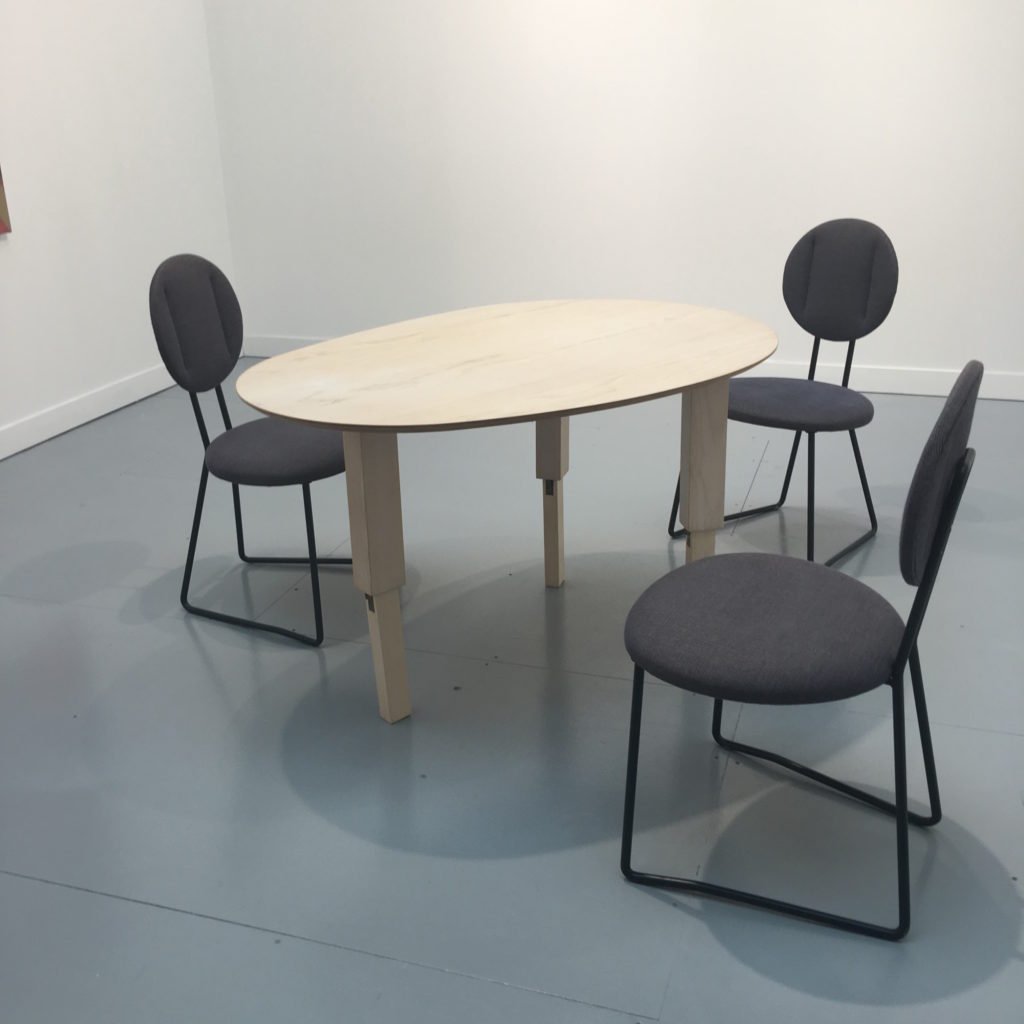
Janette Laverrière, Table Basse Oeuf (1955). Courtesy Silberkuppe.
6. Silberkuppe
Some of the best discoveries only come out of conversations, and engaging with Berlin-based Silberkuppe brought a delightful anecdote to light. The sculptor Nairy Baghramian (who is the partner of one of the directors at Silberkuppe) was invited by curator Adam Szymczyk to present a project of discovering an overlooked historical position back in 2008. Baghramian thus came across the work of architect and interior designer Janette Laverrière, who was criticized in her day for not being commercial enough, eventually turning to making what she referred to as “useless objects.”
Similarities with Baghramian’s approach abound, and the two became close friends. Laverrière passed away one day after her 101st birthday, on the first day of the year 2011. Silberkuppe, working closely with her daughter, is recreating some of her prototypes, such as this egg-shaped coffee table from the 1960s, and will also produce never-realized works from sketches in the collection of the Centre Pompidou.
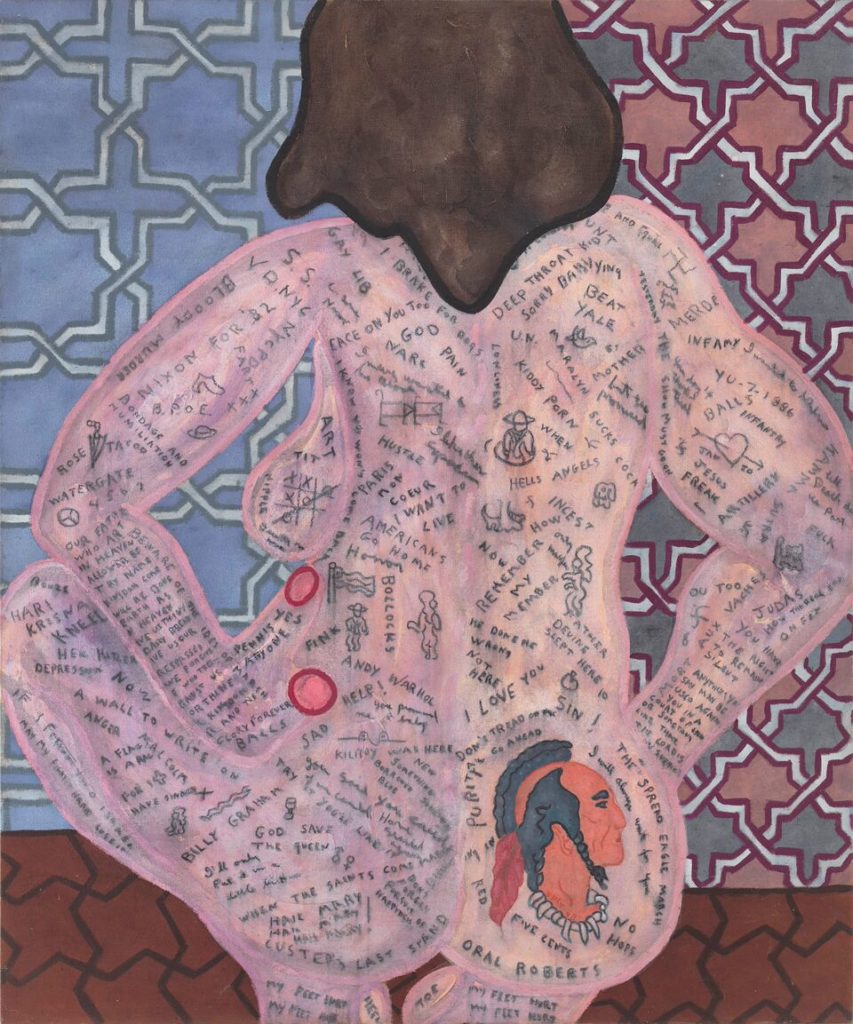
William N. Copley, Untitled, (1978). Courtesy Venus Gallery Manhattan, Los Angeles
7. Venus
The gallery, with spaces in New York and LA, is staging a presentation that focuses on the mentor/protégé relationship between René Magritte and William Copley. With a selection of paintings, the gallery illustrates their friendship, with Magritte having encouraged Copley to become a painter. The timing is very calculated, as the presentation coincides with major institutional shows for both artists, with the Copley retrospective traveling from the Menil Collection to Milan’s Fondazione Prada, and a major Magritte exhibition currently on view at the Centre Pompidou in Paris.
The booth is beautifully curated, evidencing the artists’ knack for the louche and provocative, surely enhanced by the furniture the gallery has opted for: a table and chair showing women on all fours from Bjarne Melgaard’s controversial Allen Jones Remakes (2013).
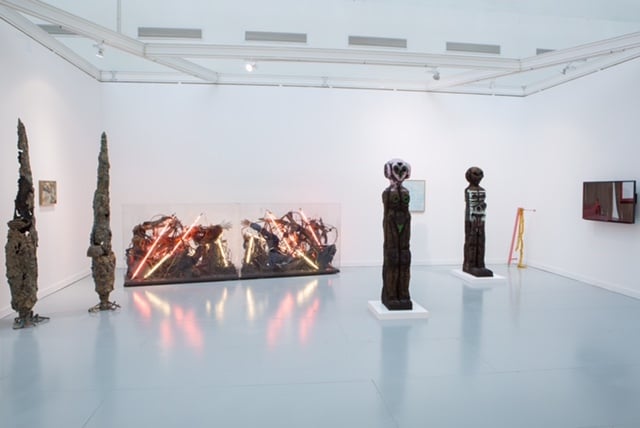
Clearing booth at FIAC 2016. Courtesy the gallery.
8. Clearing
The Brooklyn and Brussels-based gallery has been showing at the fair continuously for the past five years, and has “grown up with FIAC,” as co-director Lodovico Corsini told artnet News. With a well-curated booth at the upstairs section dedicated to young galleries, Clearing is focusing on sculptural works, or pieces relating to sculpture, such as a video by Lili Reynaud-Dewar, who performs a dance in the spaces where she’s shown at the end of every one of her exhibitions. The ritual on offer here was performed after the closing of the 2015 Venice Biennale.
Also on view are totemic bronze pieces by Huma Bhabha, and Korakrit Arunanondchai’s display Interspecies love for the metaverse (2016), which adorned the upper deck of the boat at the 9th Berlin Biennale, where his post-apocalyptic film was also shown.
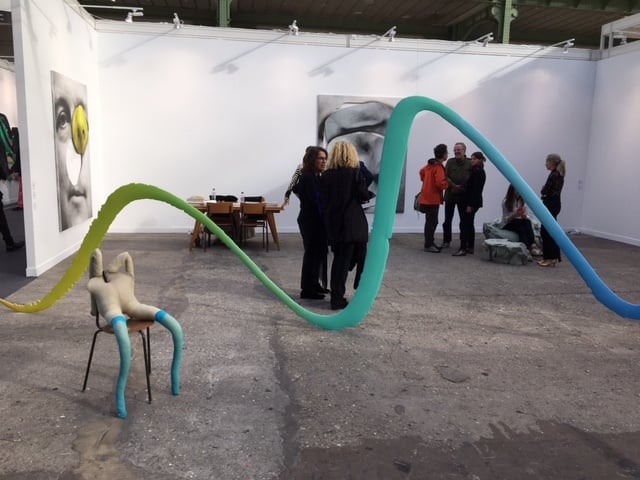
Sadie Coles booth at FIAC 2016. Photo Hili Perlson.
9. Sadie Coles
London dealer Sadie Coles presented a booth dedicated almost entirely to Urs Fischer, with all new works from this year. There were wall mounted pieces, a huge sculpture that ran across the entire booth, and couches carved out of foam that looked like they were formed in clay, with the artist’s “finger prints” visible in the soft material. One piece by Sarah Lucas, Suffolk Bunny, was placed at the very front, looking not at all out of place.